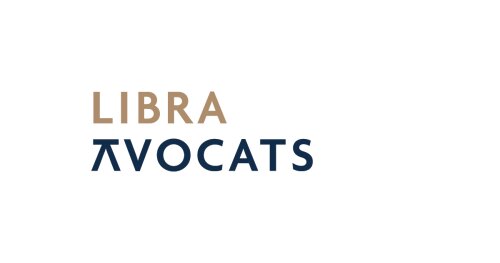Best ADR Mediation & Arbitration Lawyers in Diekirch
Share your needs with us, get contacted by law firms.
Free. Takes 2 min.
List of the best lawyers in Diekirch, Luxembourg
About ADR Mediation & Arbitration Law in Diekirch, Luxembourg
Alternative dispute resolution in Luxembourg covers consensual processes like mediation and adjudicative processes like arbitration. In Diekirch, ADR operates within the national legal framework while practical support is provided locally by the Tribunal d arrondissement de Diekirch and regional professional bodies. Mediation helps parties reach a voluntary settlement with the help of a neutral mediator. Arbitration results in a binding decision by one or more arbitrators acting as private judges. Both paths aim to deliver faster, more confidential, and more flexible solutions than traditional court litigation.
Businesses and individuals in the north of the country often select Diekirch as the seat of their ADR proceedings for convenience. The seat matters because it determines which court has supervisory and support powers. Where the seat is in the Diekirch district, applications for the appointment of arbitrators, interim relief, taking of evidence, recognition, enforcement, or setting aside of awards are generally handled by the District Court in Diekirch, subject to statutory rules and possible appeal routes.
Luxembourg law accommodates both ad hoc proceedings and institutional ADR. Parties may choose institutional rules and services offered by local centers of the Luxembourg Chamber of Commerce for mediation and arbitration, or by independent organizations. In cross border disputes, Luxembourg law interacts with European Union instruments and international conventions to facilitate recognition and enforcement of settlements and awards.
Why You May Need a Lawyer
Many ADR matters are legally and procedurally sensitive. A lawyer can help you determine whether mediation or arbitration fits your goals, draft or interpret dispute resolution clauses, and protect you from unexpected jurisdictional or enforcement issues. Legal advice is especially useful before any dispute arises, at the clause drafting stage, because the wording of an ADR clause can strongly influence cost, timing, and outcome.
You may need a lawyer if you have a commercial contract that references arbitration or mediation, if you face a shareholder, partnership, or joint venture dispute, if you need urgent interim measures to preserve assets or evidence, or if a cross border issue raises questions about applicable law, language, or enforcement in Luxembourg. Consumers and employees faced with standard form arbitration clauses should seek advice on their validity and on the suitability of consumer or labor mediation bodies. In family and neighborhood matters, counsel can guide you toward recognized mediators and ensure any settlement is properly formalized and enforceable.
Lawyers also add value in selecting qualified neutrals, preparing persuasive position papers for mediation, presenting evidence efficiently in arbitration, navigating confidentiality and privilege rules, and converting settlements or awards into enforceable titles before the competent Diekirch court.
Local Laws Overview
Mediation in civil and commercial matters is grounded in Luxembourg legislation implementing the EU Mediation Directive. Parties may enter mediation voluntarily or on a court suggestion. Mediation is confidential. Statements and documents prepared for mediation are generally protected from disclosure in court or arbitration, subject to limited exceptions. When the parties settle, they can ask the President of the District Court to approve the agreement so it becomes enforceable. Luxembourg law also provides for specific mediation frameworks in sectors such as consumer, family, and criminal matters, each with particular rules.
Arbitration is governed by provisions of the Luxembourg New Code of Civil Procedure along with international instruments. The arbitration agreement should be in writing and clearly show the parties consent to arbitrate. Disputes concerning rights the parties may freely dispose of are typically arbitrable. Certain matters are not arbitrable for public policy reasons, for example questions of personal status, most family law issues, insolvency proceedings, and some consumer and employment disputes depending on the circumstances. Parties are free to select arbitrators, the seat, the language, the rules, and the applicable law. Luxembourg courts can assist with the appointment of arbitrators, evidence taking, and interim measures to support the arbitration.
Luxembourg is a party to the New York Convention on the Recognition and Enforcement of Foreign Arbitral Awards, facilitating enforcement of foreign awards in Luxembourg and abroad. It is also a party to the ICSID Convention for investor state arbitration. EU instruments on jurisdiction and applicable law, such as Brussels I bis and Rome I and II, often interact with ADR issues in cross border disputes. Proceedings in the Diekirch district will generally be supervised by the Tribunal d arrondissement de Diekirch, with appeals to the Court of Appeal in Luxembourg City where provided by law.
Time limits and prescription rules continue to matter even when parties try ADR. Initiating mediation can suspend or interrupt certain limitation periods under Luxembourg law, but you should obtain legal advice on the specific timelines applicable to your claim to avoid forfeiting rights.
Frequently Asked Questions
How do mediation and arbitration differ in Luxembourg?
Mediation is a confidential, voluntary process where a neutral mediator helps parties reach their own settlement. The mediator does not decide the case. Arbitration is a private adjudication where an arbitrator issues a binding award that can be enforced like a court judgment. Mediation focuses on negotiated solutions, while arbitration produces a decision that resolves the dispute.
Can I choose Diekirch as the seat of arbitration even if my business is elsewhere?
Yes, parties are free to designate Diekirch as the seat in their arbitration clause or later by agreement. Choosing Diekirch makes the District Court in Diekirch the primary supporting and supervisory court for the arbitration, including for appointment of arbitrators and for enforcement or annulment applications.
Is a pre dispute arbitration clause enforceable against consumers or employees?
Luxembourg law contains mandatory protections for consumers and employees. Pre dispute arbitration clauses may be invalid or restricted in these contexts. Consumers often have access to sector specific mediation bodies instead. Employees have labor specific processes that favor conciliation and court protection. Always seek legal advice before relying on such clauses.
What language can we use in ADR proceedings in Diekirch?
Parties may choose the language of mediation or arbitration. French is common in legal practice and courts, but German, Luxembourgish, and English are frequently used in cross border and commercial cases. If enforcement before a court is needed, filings may have to be translated into the court s working language, typically French.
How are mediators and arbitrators selected?
Parties may jointly appoint a mediator or use an institutional list maintained by recognized centers. In arbitration, the parties can agree on a sole arbitrator or a panel and define the appointment method in their clause or by institutional rules. If the parties cannot agree, the President of the District Court in Diekirch can assist with appointments for arbitrations seated in the district.
Are mediation communications confidential?
Yes. Luxembourg mediation law protects confidentiality. What is said or produced exclusively for mediation is generally not admissible in later proceedings, subject to narrow exceptions such as threats to life or where disclosure is necessary to enforce a mediated settlement. The confidentiality obligation binds the mediator and the parties.
How do we enforce a mediated settlement?
After reaching a written settlement, the parties can apply to the President of the District Court to give the agreement enforceable effect. Once approved, it can be enforced like a judgment. For cross border matters within the EU, recognition may be facilitated under EU instruments, but legal advice is recommended to structure the settlement for smooth enforcement.
What are typical timelines and costs?
Mediation can be completed within weeks. Arbitration timelines vary with complexity, the number of arbitrators, and procedural choices. A straightforward case may conclude within several months, while complex cases may take longer. Costs include mediator or arbitrator fees, possible administrative fees for institutional cases, legal fees, expert fees, and court charges for enforcement. Clear procedural planning with counsel helps control budget and timing.
Can Luxembourg courts order interim measures in support of arbitration?
Yes. Before or during arbitration, you can apply to the District Court for urgent measures, for example to preserve assets or evidence. Arbitral tribunals may also grant interim relief if the parties agree or the rules allow. Coordination with counsel is important to avoid conflicting applications and to protect enforceability.
Will a foreign arbitral award be enforced in Diekirch?
Luxembourg applies the New York Convention. A prevailing party can seek recognition and enforcement before the District Court. The court reviews only limited grounds such as invalid arbitration agreement, due process concerns, excess of mandate, non arbitrability, or violation of Luxembourg public policy. If granted, the award becomes enforceable throughout Luxembourg.
Additional Resources
Tribunal d arrondissement de Diekirch. The District Court provides judicial support for ADR seated in its district, including appointments, interim measures, and recognition or enforcement of settlements and awards.
Barreau de Diekirch. The Diekirch Bar Association maintains a directory of lawyers and handles applications for legal aid known as assistance judiciaire for eligible individuals.
Arbitration Center of the Luxembourg Chamber of Commerce. Offers institutional arbitration rules, case administration, and lists of arbitrators for domestic and cross border disputes.
Mediation Center of the Luxembourg Chamber of Commerce. Provides trained mediators, mediation rules, and administrative services for commercial mediation.
Centre de Médiation Civile et Commerciale. Independent civil and commercial mediation organization providing accredited mediators and training.
Médiateur de la consommation. The national consumer ombudsman offering free or low cost ADR for consumer disputes in Luxembourg.
Commission de Surveillance du Secteur Financier. Financial sector out of court complaint and mediation mechanism for banking and investment services.
Commissariat aux Assurances and the Insurance Ombudsman. Out of court resolution framework for insurance disputes.
Institut Luxembourgeois de Régulation. Consumer dispute resolution mechanisms for electronic communications and energy services.
European Consumer Centre Luxembourg and the EU Online Dispute Resolution platform. Guidance for cross border consumer disputes within the EU single market.
Next Steps
Clarify your objectives and constraints. Decide whether you want a negotiated solution through mediation or a binding decision through arbitration. Consider confidentiality needs, speed, cost, and the importance of preserving business relationships.
Review any existing contracts. Identify ADR clauses, the designated seat, rules, language, and governing law. If the clause is unclear or silent, consult counsel to agree procedural terms that fit your dispute.
Preserve your rights. Take steps to comply with notice requirements, pre action protocols, and time limits. Starting mediation may suspend certain limitation periods, but do not assume this without legal confirmation.
Select the right forum and neutrals. For mediation, agree on a qualified mediator with relevant subject matter experience. For arbitration, decide on the number of arbitrators, their qualifications, and the applicable rules. If needed, apply to the President of the District Court in Diekirch for assistance with appointments or interim relief.
Prepare effectively. Gather key documents, factual timelines, and any expert analyses. Draft a concise case summary and a settlement proposal for mediation. For arbitration, work with your lawyer on pleadings, evidence, and procedural orders that promote efficiency.
Plan for enforceability. For settlements, arrange court approval to obtain enforceable effect. For awards, be ready to apply for recognition and enforcement in Diekirch or wherever assets are located, and anticipate any potential public policy or due process objections.
Consider funding and costs. Discuss budgets, fee arrangements, and cost recovery with your lawyer. Explore whether assistance judiciaire is available in your situation and whether sector specific ombudsman processes can resolve the dispute at low or no cost.
Engage local counsel early. A lawyer with ADR experience in the Diekirch district can safeguard procedural steps, leverage local institutions, and streamline enforcement so you can resolve the matter efficiently and with confidence.
Lawzana helps you find the best lawyers and law firms in Diekirch through a curated and pre-screened list of qualified legal professionals. Our platform offers rankings and detailed profiles of attorneys and law firms, allowing you to compare based on practice areas, including ADR Mediation & Arbitration , experience, and client feedback.
Each profile includes a description of the firm's areas of practice, client reviews, team members and partners, year of establishment, spoken languages, office locations, contact information, social media presence, and any published articles or resources. Most firms on our platform speak English and are experienced in both local and international legal matters.
Get a quote from top-rated law firms in Diekirch, Luxembourg — quickly, securely, and without unnecessary hassle.
Disclaimer:
The information provided on this page is for general informational purposes only and does not constitute legal advice. While we strive to ensure the accuracy and relevance of the content, legal information may change over time, and interpretations of the law can vary. You should always consult with a qualified legal professional for advice specific to your situation.
We disclaim all liability for actions taken or not taken based on the content of this page. If you believe any information is incorrect or outdated, please contact us, and we will review and update it where appropriate.










